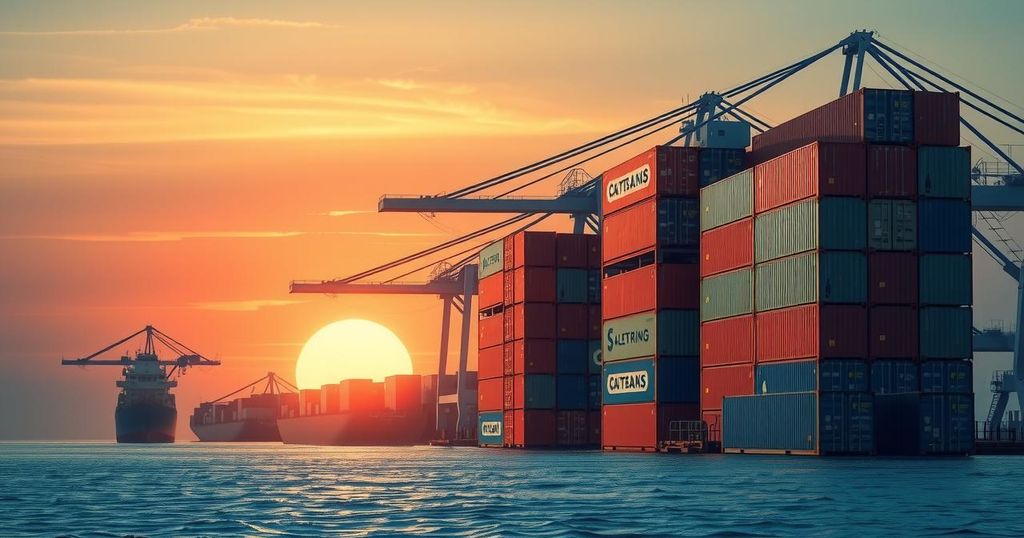President Trump’s new tariffs on imports from Canada and Mexico have led to swift retaliation, with Canada announcing $30 billion in counter-tariffs and China imposing tariffs on U.S. agricultural goods. Mexican President Sheinbaum vowed a response that aims to mitigate economic confrontation. Overall, these actions indicate escalating tensions in international trade relations and the potential for significant economic disruption.
President Trump has implemented 25% tariffs on goods imported from Canada and Mexico, prompting immediate retaliatory responses from both nations. China, concurrently facing a 10% tariff on U.S. exports, also announced reciprocal measures targeting the U.S. agricultural sector. This escalation in trade tensions marks a significant moment in international relations, particularly involving America’s closest neighbors and key economic partners.
Canadian Prime Minister Justin Trudeau swiftly announced a $30 billion counter-tariff on U.S. imports, which could escalate to $155 billion within weeks. The Canadian government plans to target American beverages and appliances, including bourbon and orange juice. Trudeau emphasized that Canada would not tolerate what he termed an “unjustified decision,” stating that these tariffs would ultimately hurt American consumers and jobs.
Some provincial leaders in Canada have urged for a harsher stance, with Ontario Premier Doug Ford indicating potential measures to cut off energy supplies to the U.S. as a form of retaliation. He mentioned the serious implications these tariffs could have on Ontario’s economy and Americans’ reliance on Canadian energy exports.
President Trump has justified these tariffs by alleging Canada’s failure to control drug trafficking across the border. However, Trudeau defended his country’s border efforts, noting significant reductions in fentanyl seizures by U.S. authorities following Canada’s enhanced counter-narcotics initiatives.
China’s government reacted to Trump’s tariffs by implementing its own tariffs on U.S. agricultural products and warning against the U.S. strategy of maximum pressure. China’s Foreign Ministry emphasized the need for respectful dialogue rather than intimidation. Analysts suggest that China is prepared for prolonged resistance and that further escalation could be detrimental to both economies.
Meanwhile, Mexican President Claudia Sheinbaum indicated that her country would respond with its own tariffs, emphasizing that these measures were not intended to provoke conflict. She highlighted the importance of collaboration between the U.S. and Mexico in addressing issues such as drug trafficking while criticizing the potential impact of American tariffs on both nations’ economies.
In summary, President Trump’s tariffs on Canada, China, and Mexico have elicited immediate and robust retaliatory measures from these nations, signifying a potential escalation in trade tensions. Each country’s leadership has articulated concerns about the detrimental economic impacts resulting from these tariffs, advocating for dialogue and cooperation rather than confrontation. The unfolding dynamics of this trade conflict could have lasting implications for international relations and global economic stability.
Original Source: www.cbsnews.com






